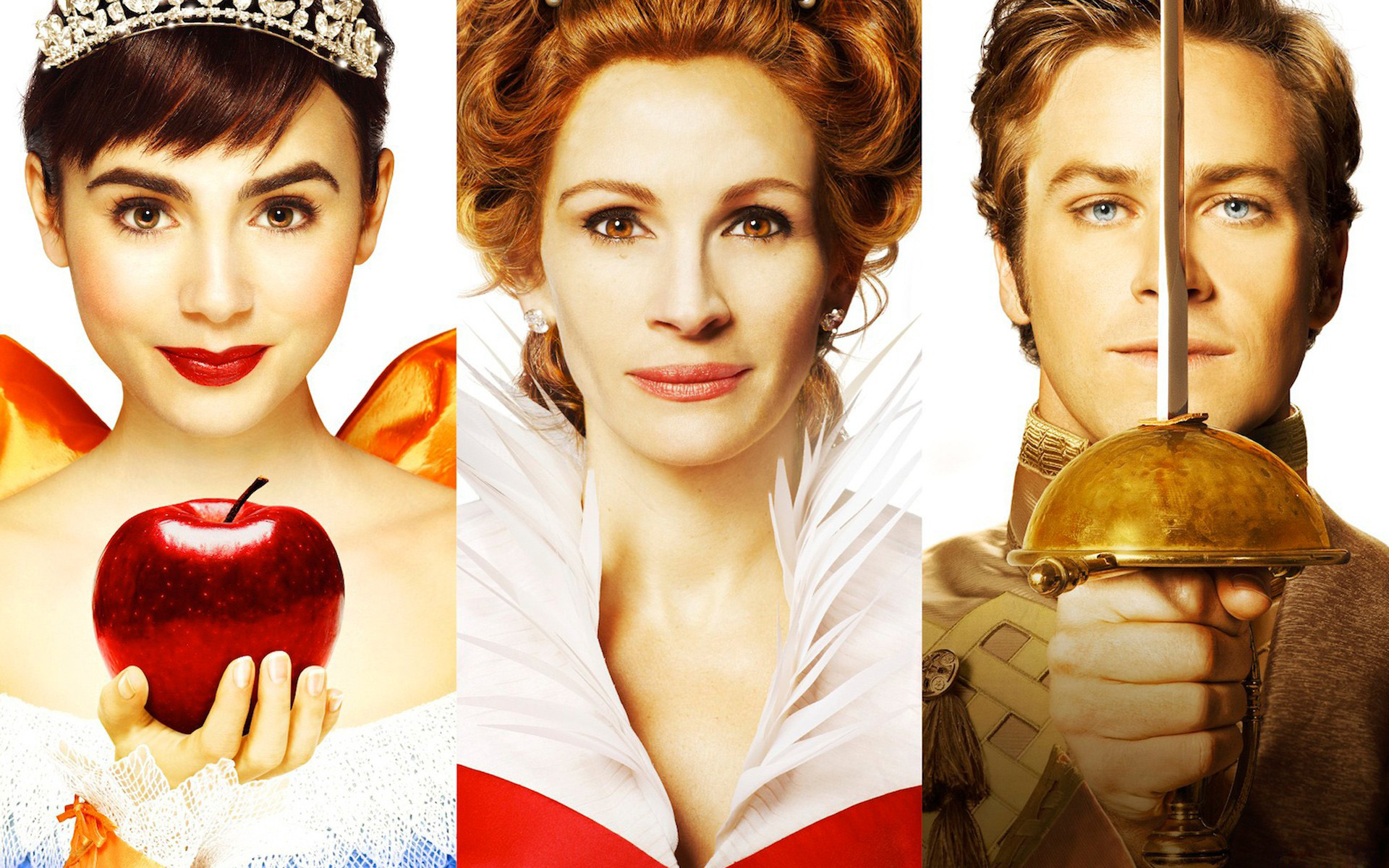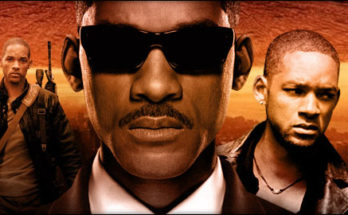Who is Funniest One of All?
Mirror Mirror reinterprets the Snow White legend as a whimsical, lighthearted comedy appropriate for the whole family. Some will inevitably be turned off by this approach, but I found it to be quite pleasant and entertaining. It certainly is easy on the eyes; directed by Tarsem Singh, known for his beautifully offbeat visuals, the film is a triumph of art direction, set decoration, and costume design. The latter is especially prominent. All of the characters are adorned in bold and colorful garments, some flowing and beautiful, others unique and eccentric, all strangely and unexplainably organic-looking. Costume designer Eiko Ishioka, who died in January at the age of seventy-three, may be deserving of a posthumous Academy Award nomination for her efforts.
All the familiar characters are there, and although the comedy has been amped up, they’re developed more or less as we expect them to be. There’s Snow White (Lily Collins), who possesses all the lyrical physical characteristics (pale skin, black hair, red lips) and radiates a naïve, virginal purity that’s nothing short of adorable. There’s her stepmother, the Queen (Julia Roberts), and although her jealousy and cruelty may not be as harsh as they are in darker adaptations, she’s very much a wicked woman. There’s the Prince, here named Alcot (Armie Hammer), who is indeed handsome and brave, if ever so slightly dimwitted. And then, of course, there are the Seven Dwarfs, a ragtag band of pint-sized marauders who live in a hollow tree. Don’t go in expecting the names synonymous with Disney; this time around, they’re given names like Wolf, Chuckles, and Grimm (an obvious ode to the Brothers Grimm).
There are several new characters, the most notable being the Queen’s personal valet, Brighton (Nathan Lane). Naturally, much of the Queen’s frustrations are taken out on him, and he takes it with a great deal of fear and just a hint of biting sarcasm. All of the characters are given their fair share of jokes, but he’s essentially the comedy relief; at one point, he’s punished by being turned into a cockroach. The Dwarfs also serve as comedy relief, although they’re also portrayed in a very sympathetic light, even when they rob a stranger passing through the forest. We learn that, after the Queen claimed the crown, she decreed that all “undesirables” be cast out of the kingdom. These seven men fell into this category when no one would speak on their behalf. It’s a shame too, seeing as, at one time, they all had respectable jobs.
Although the underlying concept of a jealous queen imprisoning her beautiful stepdaughter remains, many liberties are taken with the overall plot. The Queen, desiring to be the fairest one of all, greedily taxes the people of the kingdom to finance opulent parties and numerous beauty regiments. As she tries to keep her orphaned stepdaughter away from the throne, she sets her sights on marrying Prince Alcot, whose riches would surely solve her financial problems. The problem, of course, is that Alcot is besotted by Snow White. The Queen orders Brighton to murder the young maiden in the forest, but he finds he cannot bring himself to do it. She runs away and is soon introduced to the Dwarfs, most of whom quickly decide they like her a great deal.
Snow White, meanwhile, has finally gotten a firsthand look at the villagers, who have been so heavily taxed that they live in a state of Dickensian despair. With the help of the Dwarfs, who were little more than desperate bandits, she vows to set things right. Her mission to stop the queen and win the affections of Alcot, now under a puppy-love spell, allows for several exciting and fun action sequences. These would include a training montage, a swordfight with gigantic wooden sketch dolls controlled by puppet strings, and a climactic encounter with a widely dreaded forest beast – the same one that in all likelihood killed her father, the King, ten years earlier and plunged the world into a never-ending winter.
The film has a bright storybook look about it, which is appropriate given its fairytale origins. The main castle, for example, rests impossibly on a precipice jutting up from the middle of a lake. And then there’s the Queen’s mirror, which in this case isn’t a mirror at all but rather a portal to a hut in the middle of an otherworldly lake. The mood is fittingly set by composer Alan Menken, who may not have been solely responsible for the Disney Renaissance but certainly had a big hand in making it happen. The only ill-fitting element of Mirror Mirror is a Bollywood-style musical sequence played during the end credits – included, I suspect, as a way for Tarsem to get back in touch with his Indian roots. But overall, the film is lightweight, pleasant, and exuberant fun.



